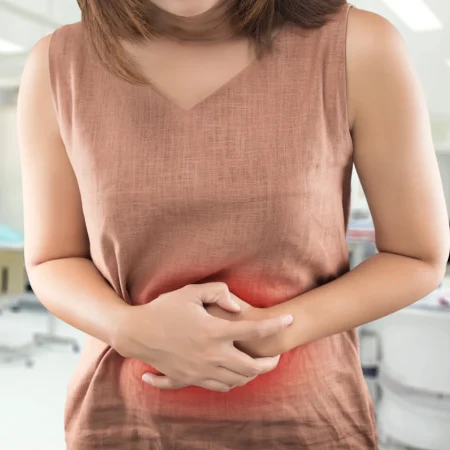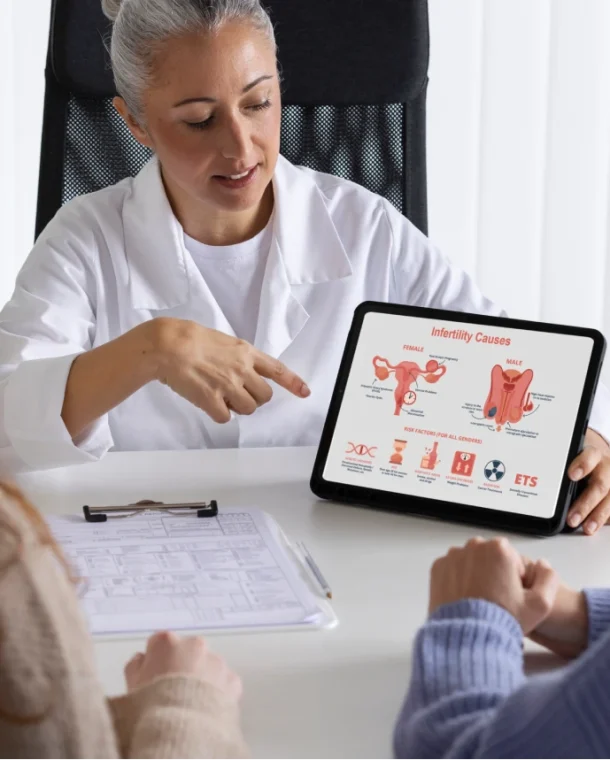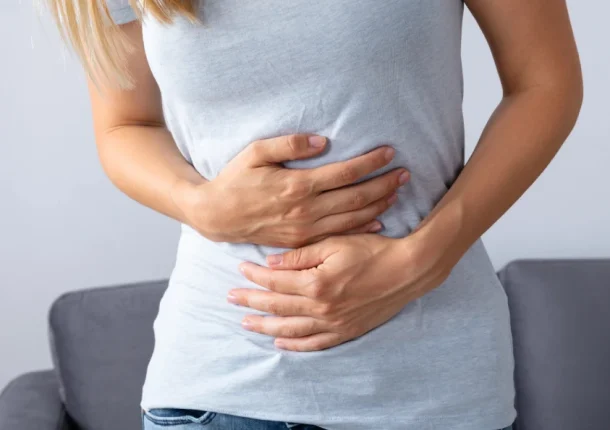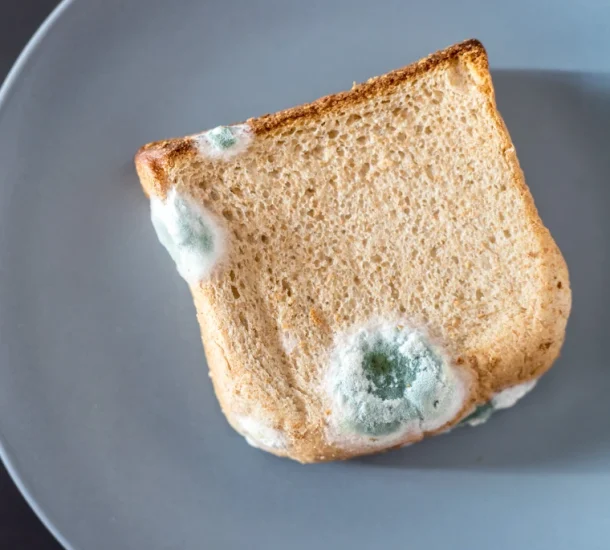Diarrhea
- Your Digestive Health, Our Priority
- Fast Relief for Digestive Discomfort
- Trust NextGen for Expert Gastrointestinal Care
- From Nausea to Bloating, We've Got You Covered

Diarrhea
- Your Digestive Health, Our Priority
- Fast Relief for Digestive Discomfort
- Trust NextGen for Expert Gastrointestinal Care
- From Nausea to Bloating, We've Got You Covered

Expert Diagnosis & Care
Our team provides accurate diagnoses for gastrointestinal issues and delivers prompt, effective treatments to ensure your comfort and well-being.
Convenient, Walk-In Services
Visit us without an appointment, and receive immediate care without long wait times, ensuring you get treated quickly and effectively.
Comprehensive Treatment Options
We offer a variety of treatments, from IV hydration to prescription medications, aimed at relieving your symptoms and ensuring swift recovery.
Patient-Focused Approach
NextGen Walk-in Clinic & Urgent Care, we prioritize your health with personalized care, offering support and guidance throughout your treatment and recovery process.

Causes, Symptoms, Treatment & How NextGen Walk-in Clinic & Urgent Care Can Help
The digestive system is an essential part of our body that plays a crucial role in breaking down food and absorbing nutrients. When issues arise in the digestive process, it can lead to a variety of gastrointestinal (GI) complaints. These can range from mild discomfort to more severe conditions that require medical attention. Understanding how the digestive system works and recognizing the common signs of gastrointestinal problems is important for maintaining digestive health.
Overview of the Digestive System
The digestive system is made up of a series of organs that work together to process the food and fluids we consume. The journey begins in the mouth, where food is broken down by chewing and mixed with saliva to form a substance known as chyme. The food then travels down the esophagus and into the stomach, where it is further broken down by stomach acids and enzymes. From there, it moves into the small intestine, where the majority of nutrient absorption takes place. The remaining undigested food moves into the large intestine, where water and salts are absorbed, and the waste is eventually eliminated through the rectum.
- Mouth: Begins the process of digestion through chewing and saliva.
- Esophagus: Transports food from the mouth to the stomach.
- Stomach: Mixes food with gastric juices for further breakdown.
- Small Intestine: Main site for nutrient absorption.
- Large Intestine: Absorbs water and salts from the remaining undigested food.
- Rectum and Anus: Expel waste from the body.
When any part of this system is disrupted, it can lead to gastrointestinal complaints, which are often characterized by symptoms like pain, discomfort, bloating, and changes in bowel habits.
- Diarrhea:
- Diarrhea refers to frequent, loose, or watery stools and can be caused by infections, food intolerances, or certain medications. It is often accompanied by cramping, urgency, and dehydration.
- Constipation:
- Constipation is characterized by infrequent or difficult bowel movements. It can cause bloating, abdominal discomfort, and a feeling of incomplete evacuation. Diet, lack of exercise, and certain medications can contribute to constipation.
- Nausea and Vomiting:
- Nausea is the sensation of discomfort in the stomach that may lead to vomiting, which is the forceful expulsion of stomach contents. Both symptoms are common and can be caused by a variety of factors, including infections, food poisoning, motion sickness, or underlying medical conditions.
- Abdominal Pain:
- Abdominal pain can range from mild to severe and may be caused by indigestion, gas, food intolerances, or more serious conditions such as ulcers, appendicitis, or gastrointestinal disorders like Crohn’s disease or irritable bowel syndrome (IBS).
- Bloating:
- Bloating is the sensation of fullness or distention in the abdomen, often accompanied by excessive gas or discomfort. It can be triggered by overeating, gas buildup, or certain foods that are harder to digest.
Managing gastrointestinal issues often involves lifestyle changes, such as adjusting your diet, drinking plenty of water, and getting regular exercise. For more severe or persistent symptoms, medical treatment may be necessary, including medications to relieve symptoms or address the underlying cause of the problem.
If you experience severe or prolonged gastrointestinal symptoms, such as unexplained weight loss, persistent abdominal pain, or blood in your stool or vomit, it’s essential to seek professional care promptly. Early diagnosis and treatment can help prevent complications and ensure your digestive health is properly managed.
At NextGen Walk-in Clinic & Urgent Care, we provide expert care for a range of gastrointestinal issues, from common complaints like nausea and vomiting to more serious conditions. Our healthcare providers can help diagnose and treat your symptoms, providing relief and helping you get back to feeling your best.


What is Diarrhea?
Defining Diarrhea
Diarrhea is a condition characterized by frequent, loose, or watery stools. It can vary in severity, from mild discomfort to more severe cases that cause dehydration and other health complications. Diarrhea typically lasts for a short duration, but if it persists for more than a few days, it could indicate a more serious underlying health issue.
Typical Duration
Most cases of diarrhea resolve within a few days. Acute diarrhea is commonly caused by infections, foodborne illnesses, or medications and usually lasts anywhere from 1 to 3 days. Chronic diarrhea, however, persists for longer periods and may require medical intervention to determine its cause and appropriate treatment.
Understanding the Causes of Diarrhea
• Viral Infections: Viruses such as norovirus and rotavirus are common causes of diarrhea. These viruses can spread easily through contaminated food, water, or surfaces, leading to widespread outbreaks, especially in close environments like schools and cruise ships.
• Bacterial Infections: Bacteria like Salmonella, E. coli, and Campylobacter can cause food poisoning and trigger severe diarrhea. These bacteria are often found in undercooked meats, contaminated vegetables, or unclean drinking water.
• Parasitic Infections: Parasites such as Giardia and Entamoeba histolytica can cause persistent diarrhea. These organisms are commonly contracted through contaminated food or water, especially in developing countries.
Consuming contaminated food or water can lead to foodborne illnesses, which are a major cause of diarrhea worldwide. Foodborne pathogens can cause nausea, vomiting, cramps, and diarrhea. Contaminated food can include improperly handled meat, unwashed fruits or vegetables, and raw dairy products.
Certain medications can disrupt the balance of the gut and trigger diarrhea. For instance:
• Antibiotics: These drugs can disrupt the natural bacteria in your intestines, leading to a condition called antibiotic-associated diarrhea.
• Antacids: Some antacids containing magnesium can cause diarrhea, especially when taken in large amounts.
• Chemotherapy Drugs: Chemotherapy treatment can affect the digestive system and lead to both diarrhea and other gastrointestinal issues.
• Irritable Bowel Syndrome (IBS): IBS is a functional gastrointestinal disorder that leads to symptoms like abdominal pain, bloating, and alternating episodes of diarrhea and constipation. While its exact cause isn't fully understood, stress, diet, and genetics play a role in its development.
• Inflammatory Bowel Disease (IBD): Conditions such as Crohn's disease and ulcerative colitis are chronic, inflammatory conditions that affect the gastrointestinal tract, often causing frequent diarrhea. IBD is typically characterized by long-term inflammation and may involve other symptoms like weight loss, fatigue, and abdominal pain.
• Lactose Intolerance: People who are lactose intolerant have difficulty digesting lactose, the sugar found in dairy products. When they consume dairy, they may experience bloating, cramps, and diarrhea due to the body’s inability to break down lactose properly.
• Gluten Sensitivity: Celiac disease is an autoimmune disorder in which the ingestion of gluten (found in wheat, barley, and rye) triggers inflammation in the small intestine. This leads to symptoms like diarrhea, abdominal pain, and bloating.


Symptoms of Diarrhea
Defining Diarrhea
Diarrhea is typically characterized by the following symptoms:
- Loose or Watery Stools: This is the most common symptom, with stool consistency ranging from semi-liquid to completely liquid.
- Frequent Bowel Movements: An increase in the frequency of bowel movements, often more than three times a day, is a key indicator.
- Abdominal Cramps or Bloating: Many individuals experience discomfort, cramping, or bloating in the abdominal area due to increased motility in the intestines.
Severe Symptoms
While most cases of diarrhea are mild and temporary, some symptoms may indicate more serious health concerns:
- Fever: A fever, often accompanying viral or bacterial infections, may indicate that the body is fighting off an infection.
- Blood in Stool: The presence of blood or mucus in the stool could be a sign of a more serious condition, such as inflammatory bowel disease (IBD), Crohn's disease, or a bacterial infection like E. coli or Salmonella.
- Dehydration: Excessive fluid loss from frequent diarrhea can lead to dehydration. Symptoms of dehydration include dry mouth, dizziness, lightheadedness, and reduced urine output.
Treatment for Diarrhea
• Rest and Hydration: Resting helps your body recover while staying hydrated is essential to replace lost fluids. Water, clear liquids, and electrolyte-rich drinks (like sports drinks) are recommended.
• BRAT Diet: The BRAT diet, which consists of bananas, rice, applesauce, and toast, is gentle on the stomach and can help reduce diarrhea. These foods are low in fiber, which helps firm up stool consistency.
• Avoiding Dairy and Fatty Foods: Dairy products, especially for those who are lactose intolerant, and fatty foods can worsen diarrhea. Avoiding these can help give the digestive system a break.
• Anti-Diarrheal Medications: Over-the-counter medications like Loperamide (Imodium) can help reduce diarrhea by slowing down intestinal motility. However, these should be used with caution, especially if the diarrhea is caused by bacterial infections.
• Probiotics: Probiotics can help restore the natural balance of good bacteria in the gut, especially after taking antibiotics or dealing with viral infections. They may help shorten the duration of diarrhea.
• Oral Rehydration Solutions (ORS): Oral rehydration solutions contain a balanced mix of water, salts, and sugars that help replace lost fluids and electrolytes. These are especially important for children and older adults who are at higher risk of dehydration.
• IV Fluids for Severe Dehydration: If diarrhea leads to severe dehydration and oral fluids are insufficient, intravenous (IV) fluids may be administered in a healthcare setting to rehydrate the body effectively.


When to Seek Medical Help
If diarrhea persists for more than 48 hours, is accompanied by severe pain, fever, or dehydration, or if there is blood in the stool, it’s important to seek medical attention immediately. A healthcare professional can diagnose the cause and offer appropriate treatment.
• Diarrhea lasting more than 48 hours
• Accompanied by high fever, blood in the stool, or severe dehydration
• May indicate a serious underlying issue requiring immediate medical attention
• Dry mouth
• Dizziness or lightheadedness
• Dark urine or a decrease in urination
• Seek medical care immediately to avoid further complications
• Fever: Often indicates an infection
• Blood in stool: Could point to infections, IBD, or other conditions
• Mucus in stools: Can signal infection or other gastrointestinal concerns
How NextGen Walk-in Clinic & Urgent Care Can Help
Immediate Care and Treatment
- Diagnosis through physical exams, stool samples, and blood tests
- Fast and accurate assessment to determine the cause of symptoms
IV Hydration Therapy
- IV hydration therapy for severe dehydration
- Restores fluids and electrolytes to prevent serious complications
Medications and Prescription
- Antibiotics for bacterial infections
- Probiotics to restore gut health if needed
- Anti-diarrheal medications like loperamide (Imodium) to manage symptoms
Long-Term Management
- Personalized dietary advice for chronic conditions like IBS and IBD
- Prescription medications to manage flare-ups
- Regular follow-up care to monitor and control symptoms


Preventing Diarrhea
• Handwashing: One of the most effective ways to prevent diarrhea is by maintaining good personal hygiene. Washing your hands with soap and water before eating, preparing food, and after using the restroom helps eliminate harmful bacteria, viruses, and parasites that may cause gastrointestinal issues.
• Safe Food Handling: Ensuring food safety from farm to table is key to preventing foodborne illnesses. Always wash fruits and vegetables thoroughly, cook meat, poultry, and seafood to the appropriate internal temperatures, and avoid cross-contaminating raw foods with ready-to-eat items.
• Clean Environment: Disinfecting kitchen countertops, utensils, and cutting boards regularly helps reduce the risk of contamination. Avoiding direct contact with raw foods and using separate cutting boards for meats and vegetables can significantly reduce the risk of contamination and the spread of harmful pathogens.
• Avoiding Stressors: Chronic stress can negatively impact your digestive system, sometimes leading to gastrointestinal issues like diarrhea. Identifying and managing stress triggers in your daily life—whether they come from work, relationships, or other factors—can help prevent stress-related digestive problems.
• Relaxation Techniques: Practicing relaxation methods such as deep breathing exercises, progressive muscle relaxation, or yoga can help lower stress levels and keep your digestive system functioning optimally. Taking time for yourself to unwind each day, even for just 10 minutes, can make a significant difference in your overall digestive health.
• Regular Exercise: Incorporating physical activity into your daily routine has a positive effect on both mental and digestive health. Exercise can help reduce stress levels, improve gut function, and prevent digestive disorders like diarrhea. It also encourages better blood circulation, which supports the healthy functioning of your digestive system.
• Cook Food Properly: Proper cooking techniques ensure that harmful bacteria or viruses in food are eliminated, reducing the risk of foodborne illnesses that could lead to diarrhea. Meats, eggs, and seafood should always be cooked to their recommended internal temperatures to kill any potential pathogens.
• Proper Food Storage: Storing food at the right temperature is crucial in preventing bacterial growth that could cause illness. Keep perishable foods like meats, dairy, and eggs refrigerated, and make sure leftovers are stored in airtight containers and consumed within a few days. Additionally, ensure that your refrigerator is set to the correct temperature (below 40°F) to slow bacterial growth.
• Avoid Risky Foods: Limiting or avoiding foods that are more likely to cause gastrointestinal issues—like undercooked meats, unpasteurized dairy, and raw or unwashed produce—can go a long way in preventing diarrhea. If you have a sensitive stomach, it’s especially important to be cautious about the foods you consume and pay attention to their freshness.
Customer Reviews for NextGen Walk-in Clinic & Urgent Care

Emmett S.
Lorem ipsum dolor sit amet, consectetur adipiscing elit. Praesent tincidunt tortor at tempor auctor. Fusce venenatis euismod eros eget ullamcorper. Aliquam fermentum dignissim metus vel maximus. Integer quis tempor sem. Mauris placerat fermentum ornare. Nam vestibulum hendrerit purus eget auctor. Aliquam erat volutpat.

Charlene K.
Lorem ipsum dolor sit amet, consectetur adipiscing elit. Praesent tincidunt tortor at tempor auctor. Fusce venenatis euismod eros eget ullamcorper. Aliquam fermentum dignissim metus vel maximus. Integer quis tempor sem. Mauris placerat fermentum ornare. Nam vestibulum hendrerit purus eget auctor. Aliquam erat volutpat.

Margaret J.
Lorem ipsum dolor sit amet, consectetur adipiscing elit. Praesent tincidunt tortor at tempor auctor. Fusce venenatis euismod eros eget ullamcorper. Aliquam fermentum dignissim metus vel maximus. Integer quis tempor sem. Mauris placerat fermentum ornare. Nam vestibulum hendrerit purus eget auctor. Aliquam erat volutpat.
Frequently Asked Questions (FAQs) About Diarrhea
Lorem Ipsum is simply dummy text of the printing and typesetting industry. Lorem Ipsum has been the industry's standard dummy text ever since the 1500s, when an unknown printer took a galley of type and scrambled it to make a type specimen book. It has survived not only five centuries, but also the leap into electronic typesetting, remaining essentially unchanged. It was popularised in the 1960s with the release of Letraset sheets containing Lorem Ipsum passages, and more recently with desktop publishing software like Aldus PageMaker including versions of Lorem Ipsum.
Lorem Ipsum is simply dummy text of the printing and typesetting industry. Lorem Ipsum has been the industry's standard dummy text ever since the 1500s, when an unknown printer took a galley of type and scrambled it to make a type specimen book. It has survived not only five centuries, but also the leap into electronic typesetting, remaining essentially unchanged. It was popularised in the 1960s with the release of Letraset sheets containing Lorem Ipsum passages, and more recently with desktop publishing software like Aldus PageMaker including versions of Lorem Ipsum.
Lorem Ipsum is simply dummy text of the printing and typesetting industry. Lorem Ipsum has been the industry's standard dummy text ever since the 1500s, when an unknown printer took a galley of type and scrambled it to make a type specimen book. It has survived not only five centuries, but also the leap into electronic typesetting, remaining essentially unchanged. It was popularised in the 1960s with the release of Letraset sheets containing Lorem Ipsum passages, and more recently with desktop publishing software like Aldus PageMaker including versions of Lorem Ipsum.
Lorem Ipsum is simply dummy text of the printing and typesetting industry. Lorem Ipsum has been the industry's standard dummy text ever since the 1500s, when an unknown printer took a galley of type and scrambled it to make a type specimen book. It has survived not only five centuries, but also the leap into electronic typesetting, remaining essentially unchanged. It was popularised in the 1960s with the release of Letraset sheets containing Lorem Ipsum passages, and more recently with desktop publishing software like Aldus PageMaker including versions of Lorem Ipsum.
Lorem Ipsum is simply dummy text of the printing and typesetting industry. Lorem Ipsum has been the industry's standard dummy text ever since the 1500s, when an unknown printer took a galley of type and scrambled it to make a type specimen book. It has survived not only five centuries, but also the leap into electronic typesetting, remaining essentially unchanged. It was popularised in the 1960s with the release of Letraset sheets containing Lorem Ipsum passages, and more recently with desktop publishing software like Aldus PageMaker including versions of Lorem Ipsum.
Lorem Ipsum is simply dummy text of the printing and typesetting industry. Lorem Ipsum has been the industry's standard dummy text ever since the 1500s, when an unknown printer took a galley of type and scrambled it to make a type specimen book. It has survived not only five centuries, but also the leap into electronic typesetting, remaining essentially unchanged. It was popularised in the 1960s with the release of Letraset sheets containing Lorem Ipsum passages, and more recently with desktop publishing software like Aldus PageMaker including versions of Lorem Ipsum.
Lorem Ipsum is simply dummy text of the printing and typesetting industry. Lorem Ipsum has been the industry's standard dummy text ever since the 1500s, when an unknown printer took a galley of type and scrambled it to make a type specimen book. It has survived not only five centuries, but also the leap into electronic typesetting, remaining essentially unchanged. It was popularised in the 1960s with the release of Letraset sheets containing Lorem Ipsum passages, and more recently with desktop publishing software like Aldus PageMaker including versions of Lorem Ipsum.
Lorem Ipsum is simply dummy text of the printing and typesetting industry. Lorem Ipsum has been the industry's standard dummy text ever since the 1500s, when an unknown printer took a galley of type and scrambled it to make a type specimen book. It has survived not only five centuries, but also the leap into electronic typesetting, remaining essentially unchanged. It was popularised in the 1960s with the release of Letraset sheets containing Lorem Ipsum passages, and more recently with desktop publishing software like Aldus PageMaker including versions of Lorem Ipsum.
Take Control of Your Health with NextGen Walk-in Clinic & Urgent Care
Diarrhea may be common, but it’s important not to overlook the potential underlying causes and complications. By managing your symptoms with home remedies, maintaining proper hydration, and knowing when to seek medical help, you can avoid long-term issues and discomfort.
If your symptoms persist or worsen, NextGen Walk-in Clinic & Urgent Care is here to provide prompt and effective treatment. Whether it’s acute diarrhea or a chronic condition, our experienced healthcare team offers the right solutions for your health needs.
Contact NextGen today for immediate care and get the relief you deserve!

